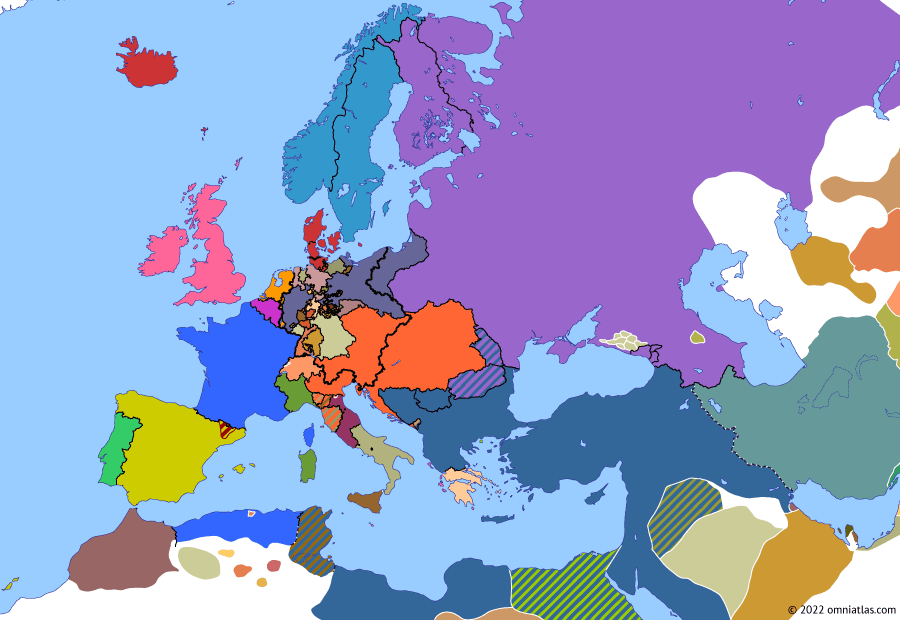Europe 1848: Year of Revolution Begins
24 February 1848
24 Feb 1848
Springtime of Peoples
-27–68 Julio-Claudian Dynasty
68–96 Flavian Dynasty
96–192 Nerva–Antonine Dynasty
192–235 Severan Dynasty
235–268 Crisis of the Third Century: Turmoil
268–284 Crisis of the Third Century: Restoration
284–311 Diocletian and the Tetrarchy
311–363 Constantinian Dynasty
363–383 Valentinianic Dynasty
383–408 Theodosian Dynasty: Divided Empire
408–425 Theodosian Dynasty: The West Besieged
425–441 Theodosian Dynasty: Fall of Africa
441–457 Theodosian Dynasty: Hunnic Wars
457–1803 NO MAPS FOR THIS PERIOD YET
1803–1814 Napoleonic Wars
1814–1815 Vienna and Waterloo
1815–1848 Congress Europe
1848–1850 Springtime of Peoples
1850–1859 Crimean War
1859–1862 Italian Unification
1862–1871 German Unification
1871–1914 Imperial Europe
1914–1918 Great War
1918–1922 Armistice Europe
1922–1939 Rise of Fascism
1939–1942 World War II: Blitzkrieg
1942–1945 World War II: Fall of the Third Reich
1945–1990 Cold War
1990–2010 Post-Cold War Europe
2010–pres Crisis of Europe
Year of Revolution Begins
24 Feb 1848 Year of Revolution Begins
21 Mar 1848 March Revolutions
11 Apr 1848 First Italian War of Independence
3 May 1848 German Question
23 Jun 1848 June Days
24 Jul 1848 First Battle of Custoza
26 Aug 1848 Truce of Malmö
29 Oct 1848 Vienna Uprising
19 Dec 1848 Rise of Napoleon III
23 Mar 1849 Battle of Novara
14 Apr 1849 Hungarian War of Independence
9 May 1849 May Uprisings
26 May 1849 Alliance of the Three Kings
3 Jul 1849 Fall of the Last Roman Republic
28 Aug 1849 Restoring the Old Order
29 Apr 1850 Erfurt Union
29 Nov 1850 Humiliation of Olmütz
By 1848 Europe was already experiencing considerable social tension, in good part due to the rise of industrialization but also because of the European potato famine, both of which led to a migration of the poor to the cities. At the same time, the continent was becoming ideologically divided between the conservative order, which was rigidly maintaining the borders and regimes set up in 1815, and the various proponents of change—nationalists, republicans, liberals and socialists. In January, Sicily revolted against rule by Naples, triggering a wave of unrest among the Italian states. The next month, an uprising in Paris overthrew King Louis Philippe and proclaimed the second French Republic. The Year of Revolution had begun.
